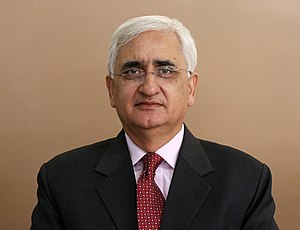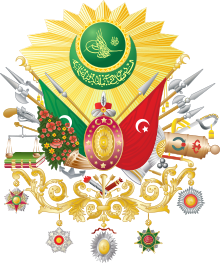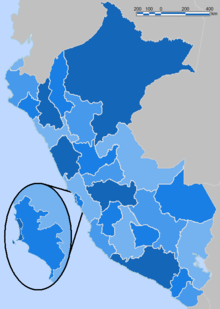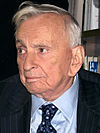Cybersecurity and privacy risk assessment of point-of-care systems in healthcare: A use case approach
| Main | Topics and categories | Tasks and projects |
The Politics portal
Politics (from Ancient Greek πολιτικά (politiká) 'affairs of the cities') is the set of activities that are associated with making decisions in groups, or other forms of power relations among individuals, such as the distribution of status or resources. The branch of social science that studies politics and government is referred to as political science.
They may be used positively in the context of a "political solution" which is compromising and non-violent, or descriptively as "the art or science of government", but also often carries a negative connotation. The concept has been defined in various ways, and different approaches have fundamentally differing views on whether it should be used extensively or in a limited way, empirically or normatively, and on whether conflict or co-operation is more essential to it.
A variety of methods are deployed in politics, which include promoting one's own political views among people, negotiation with other political subjects, making laws, and exercising internal and external force, including warfare against adversaries. Politics is exercised on a wide range of social levels, from clans and tribes of traditional societies, through modern local governments, companies and institutions up to sovereign states, to the international level.
In modern nation states, people often form political parties to represent their ideas. Members of a party often agree to take the same position on many issues and agree to support the same changes to law and the same leaders. An election is usually a competition between different parties.
A political system is a framework which defines acceptable political methods within a society. The history of political thought can be traced back to early antiquity, with seminal works such as Plato's Republic, Aristotle's Politics, Confucius's political manuscripts and Chanakya's Arthashastra. (Full article...)
Selected article
The Power of Nightmares is a BBC documentary film series, written and produced by Adam Curtis. The series consists of three one-hour films, consisting mostly of a montage of archive footage with Curtis's narration, which were first broadcast in the United Kingdom in late 2004 and have been subsequently aired in multiple countries and shown in several film festivals, including the 2005 Cannes Film Festival. The films compare the rise of the American Neo-Conservative movement and the radical Islamist movement, making comparisons on their origins and noting strong similarities between the two. More controversially, it argues that the threat of radical Islamism as a massive, sinister organised force of destruction, specifically in the form of al-Qaeda, is in fact a myth perpetrated by politicians in many countries—and particularly American Neo-Conservatives—in an attempt to unite and inspire their people following the failure of earlier, more utopian ideologies. The Power of Nightmares has been praised by film critics in both Britain and the United States. Its message and content have also been the subject of various critiques and criticisms from conservatives and progressives.
Featured picture

Salman Khurshid (born 1 January 1953) is an Indian politician belonging to the Indian National Congress, a lawyer, and a writer who has been elected from Farrukhabad Lok Sabha constituency in the General Election of 2009. He belongs to the Farrukhabad area. He is presently the Cabinet Minister of the Ministry of Law and Justice and Ministry of Minority Affairs.
Selected quote
Selected biography
George Herbert Walker Bush (1924–2018) was an American politician who served as the 41st President of the United States (1989–93). He had previously served as the 43rd Vice President (1981–89), a congressman, an ambassador, and Director of Central Intelligence. He ran unsuccessfully for president of the United States in 1980, but was chosen by party nominee Ronald Reagan to be the vice presidential nominee, and the two were subsequently elected. In 1988, Bush launched a successful campaign to succeed Reagan as president, defeating Democratic opponent Michael Dukakis. Foreign policy drove the Bush presidency; military operations were conducted in Panama and the Persian Gulf at a time of world change; the Berlin Wall fell in 1989 and the Soviet Union dissolved two years later. In the wake of economic concerns, he lost the 1992 presidential election to Democrat Bill Clinton.
Did you know (auto-generated) -

- ... that one abolitionist said that William L. Breckinridge's anti-slavery views would "disqualify [him] from political usefulness"?
- ... that Patricia Grace did not intend for her novel Potiki, about the impact of land development on an indigenous community, to be seen as political?
- ... that the London Forum, a British far-right organization, was described by an anti-fascist magazine as "[bridging] the fascist and Tory right"?
- ... that Kim E. Nielsen trained as a historian of women and politics, and came to disability history and studies via her discovery of Helen Keller's political life?
- ... that Dante used the third circle of hell to discuss contemporary Florentine politics rather than the sin of gluttony?
- ... that Dmitri Shostakovich denounced his own Tahiti Trot, an orchestral arrangement of "Tea for Two", as a political blunder?
More did you know...
- ...that the 2010 Bihar legislative assembly election takes place across six phases and over one month?
- ...that Mussolini's Quota 90 fixed the lira exchange rate against the pound sterling at the prevailing rate from five years earlier, when he assumed power?
- ...that the energy lobby contributed 19 million dollars to United States political campaigns in the 2006 election cycle?
- ...that the lifelong Democrat Jim Naugle is in his sixth straight term as the Mayor of Fort Lauderdale and supported only Republicans for President since 1968?
- ...that co-founder of the Saudi Civil and Political Rights Association Mohammed al-Bejadi spent most of 2011 in prison?
- ...that the 2013 United States federal budget may impose a 23% cut on the defense budget due to the Budget Control Act of 2011, according to Secretary of Defense Leon Panetta?
In this month
- August 3, 2005 – Mahmoud Ahmadinejad takes office as the 6th President of Iran.
- August 3, 2006 – Tuvalu holds parliamentary elections.
- August 19, 1953 – Cold War: The CIA helps to overthrow the government of Mohammed Mossadegh in Iran, and retain Shah Mohammad Reza Pahlavi on the throne (see Operation Ajax).
- August 29, 2008 – Sarah Palin becomes the first female Republican Party nominee for Vice President of the United States.
News and Current events
- August 11: 4 local government areas in New South Wales, Australia locked down after COVID-19 case
- August 11: Australia: AstraZeneca vaccine access expanded by Victorian government
- August 1: Australia: Victorian lockdown lifted
- July 29: Tunisia's president dismisses prime minister, suspends parliament
- July 25: Australia: Wikinews interviews Reg Kidd, mayor of the City of Orange, about COVID-19 lockdown and local government
- July 23: South Australia enters week-long lockdown to contain COVID-19 Delta variant spread
- July 21: Technological University Dublin senior lecturer Dr Lorcan Sirr speaks to Wikinews on housing market in Ireland
- July 21: Three rural councils in New South Wales, Australia enter 7-day lockdown
- July 21: Australia: Victoria lockdown extended by a week with 85 active cases recorded
- July 15: California governor signs new state budget, eligible Californians to get stimulus payments
Topics and categories
General images
Related portals
Associated Wikimedia
The following Wikimedia Foundation sister projects provide more on this subject:
-
 Commons
Commons
Free media repository -
 Wikibooks
Wikibooks
Free textbooks and manuals -
 Wikidata
Wikidata
Free knowledge base -
 Wikinews
Wikinews
Free-content news -
 Wikiquote
Wikiquote
Collection of quotations -
 Wikisource
Wikisource
Free-content library -
 Wikiversity
Wikiversity
Free learning tools -
 Wiktionary
Wiktionary
Dictionary and thesaurus




































































